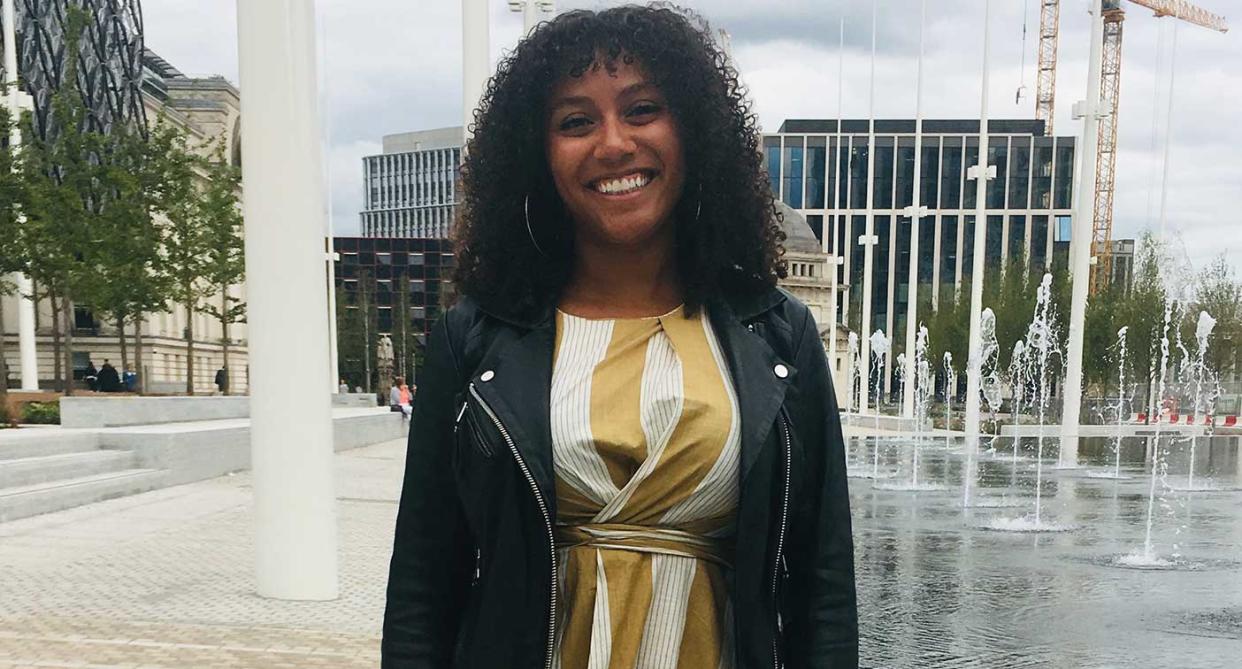What do I say that has not been said?

Yahoo has been running a Diversity in Journalism Bursary programme for the past three years. We asked our current trainee, Mhari Aurora, to give a frank and honest perspective on the events that have unfolded in the U.S. and globally following the killing of George Floyd. Here it is:
While worldwide protests are taking place to fight against systemic racism and the oppression of black people, being a black journalist has left me at a loss for words.
There is an enormous pressure to write.
To write about the protests, to represent your black community, and to show your support for the movement.
But what do you write when you have nothing new to say?
Watching videos about police brutality against black people again and again, and grieving families weeping for their loved ones stuns me no matter how many times I watch them.
The questions that run through your mind when you consider pitching a story to a newspaper or a magazine or website would sound something like:
What do I say that has not already been said?
Who would want to read the piece anyway?
How do I pitch a story about the black experience to a white editor?
Who would even publish the piece?
As a black writer these questions spin round and round in your mind, fretting over what to say and how to say it, to the point where you end up writing nothing.
This is no ordinary writer’s block; this is another type of fear.
Fear of being rejected by an editor who cannot fully understand what you are trying to say, fear of a racist backlash in the comments section, fear of not doing justice to all the black people you want to stand alongside.
It is a difficult thing to write about your life experience and to bear all to strangers online, but it is just as difficult to write an objective piece about an issue that is so painfully ingrained in your DNA that it is impossible to stay objective.
As I have progressed through my journalism career, I have been surrounded by people who look nothing like me and who have no idea what it feels like to be black.
Not to care about black issues and protest against injustice, but to be the black issue, to live the injustice, to be black when you were born and when you die, when you wake up and when you go to sleep, when you smile and when you weep.
Black journalists make up 0.2% of all journalists in the UK. Let me say that again. Black journalists make up 0.2% of all journalists in the UK.
I am struggling to find the words to express just what I am feeling.
This movement gives us hope that we have never had before, but it also fills us with dread.
We dread that it will fade away and go out of fashion and we will never see real, long-lasting change.
We dread that our children, brothers and sisters, mothers and fathers will continue to be dehumanised and objectified because of the amount of melanin their body produces.
Edward Colston’s statue being ripped down and thrown into the dock in Bristol was a watershed moment rekindling the flame of hope and restoring faith in humanity, but we still need more.
I want not to be terrified of having a son, of having to bring up a black boy and explain to him that he lives in a world which does not love him.
The stereotypes associated with black people such as strength, aggression and resilience are damaging far beyond just the obvious reasons.
It forbids us to be afraid, to be vulnerable, to need help, to hurt.
As a ‘strong independent black woman’ I am not expected to be afraid. But I am.

